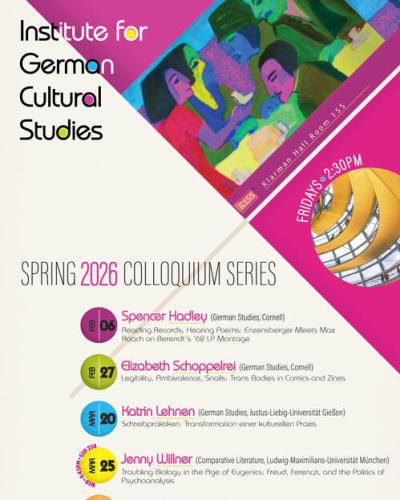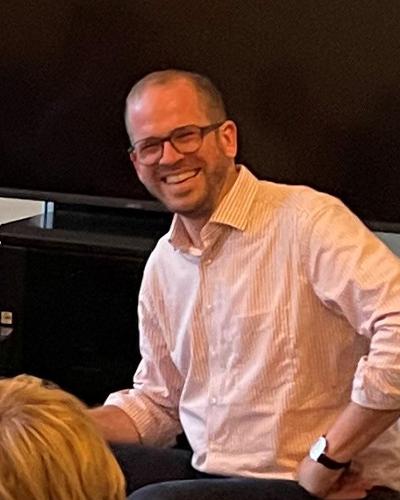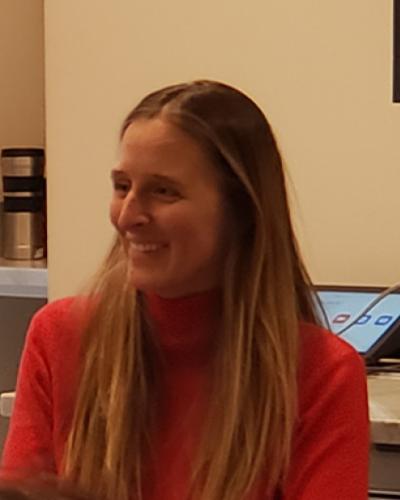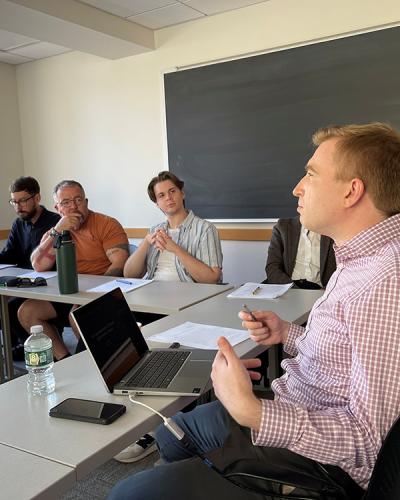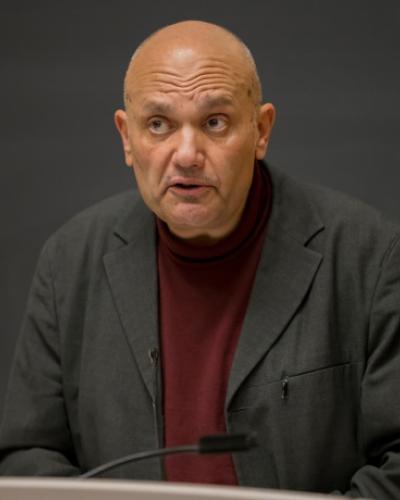On November 14th and 15th, 2017, the Institute for German Cultural Studies at Cornell University hosted one of the most engaging voices of Turkish-German background: Zafer Şenocak. On the first day of his residence, the writer delivered a lecture about the motives and affective practicalities of migrations. On the second day, Şenocak was introduced by Professor Leslie Adelson and read excerpts from his last book, titled: In deinen Worten—Mutmaßungen über den Glauben meines Vaters (Babel Verlag, 2016). These excerpts described the inherent difficulties of translating values from one space of belonging to another.
Şenocak’s speech gave a dauntless account of the passions that connect a father to his son, in many of the decisive moments of life—moments of being at home, of bravery and of imitation. Şenocak also reflected on the difficult task of translating ritualised gestures and beliefs into (literary) language. A central question that emerged during his talk concerned the difference between first- and second-generation immigrants in regard to their identities? He then discussed how the natural flow of generations has been interrupted both by modernization and by absorbing nationalities. Perhaps more striking, under such circumstances, is the continuity that sons may feel in relation to their fathers. One often assumes—especially in moralizing discourses on integration—that levels of patriarchy and democracy strongly differ, as much as one civilization differs from the next. Not so much, according to Şenocak’s experience. For him, existential dependency on the father is shared in both the first and second generations, which seems to obscure and limit the maternal through a dimension of secrecy. Relations with fathers are not transparent either; their substance is the result of a Mutmaßung, a conjecture, a supposition, an accusation, and the hypothetical ways of expression that deny transparency. Communication here is never dialogue, nor revelation. Rather, father and son share a confusing bundle of ritualized gestures that calls for sustained interpretation.
Şenocak discussed Verstümmeln—mutilating, disfiguring, or garbling—as the movement of writing by which one is carried away from this bundle of ritualized gestures that defines patriarchal relations. Such an operation is risky and cannot rely on knowledge about the ways in which political speech ought to be uttered. The operation of deciphering gestures, within their religious and affective meaning, is closer to a poetic act of daring than to a handbook of Islamic patriarchy in Germany, which is often what is—quite unreasonably—expected from Muslim public intellectuals. (Mariaenrica Giannuzzi)

